WMU Student Center becomes the 17th campus building to earn LEED certification
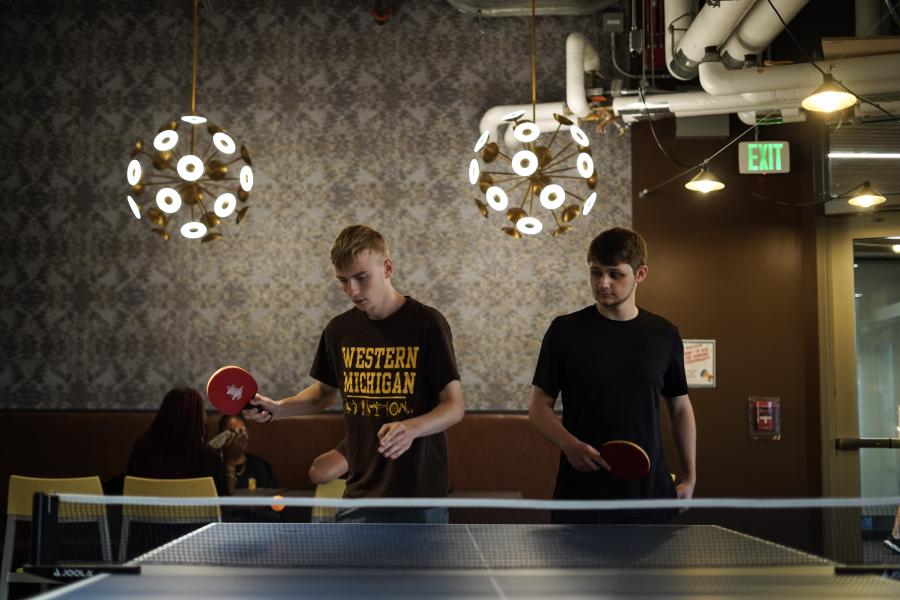
Inclusive spaces like the Game On! game room were thoughtfully designed to be sustainable and energy efficient spaces for student connection.
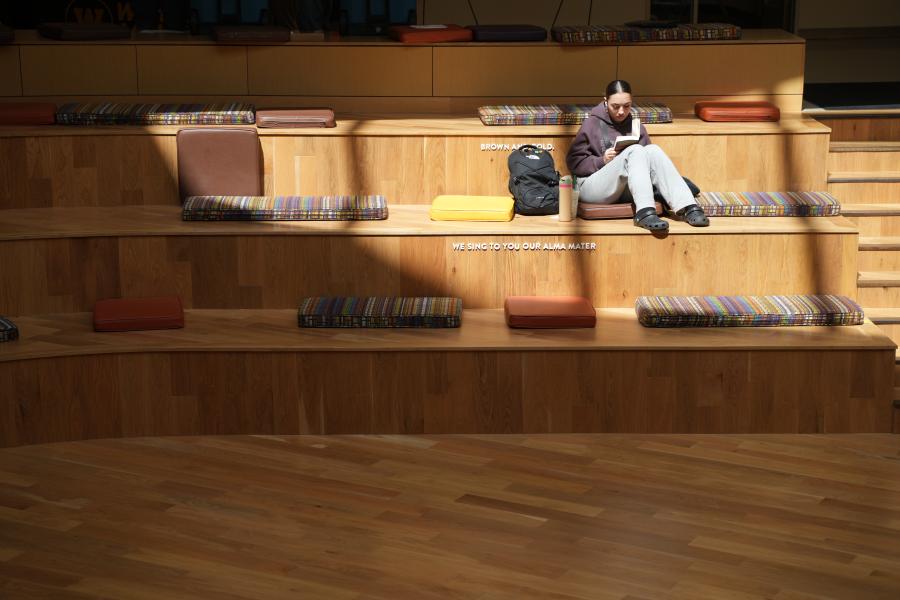
Located at the building's heart, the Gathering Stairs are lit by a skylight that helps control the need for electric light usage.
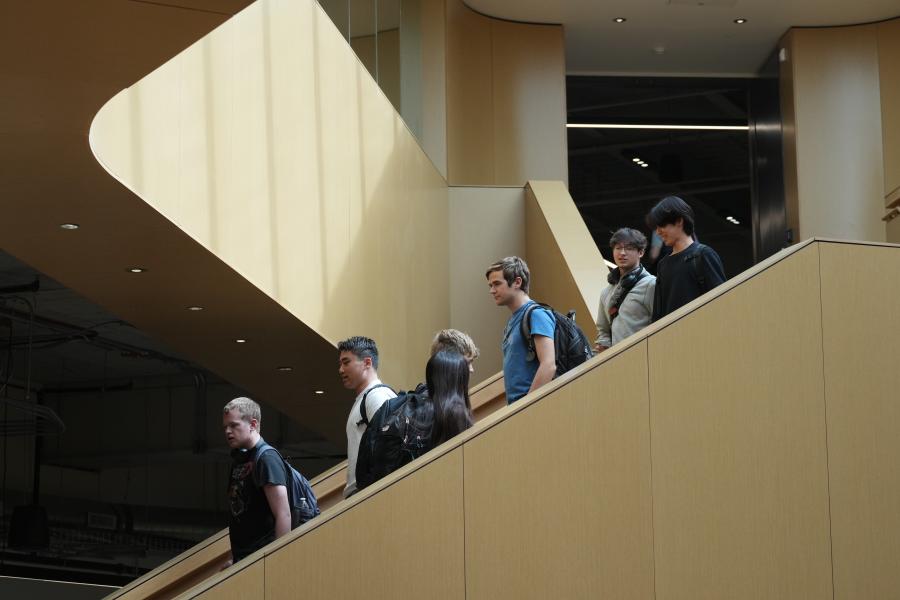
Located on the 3rd floor, the Student Center Dining facility utilizes Energy Star certified appliances and equipment to lower energy usage.
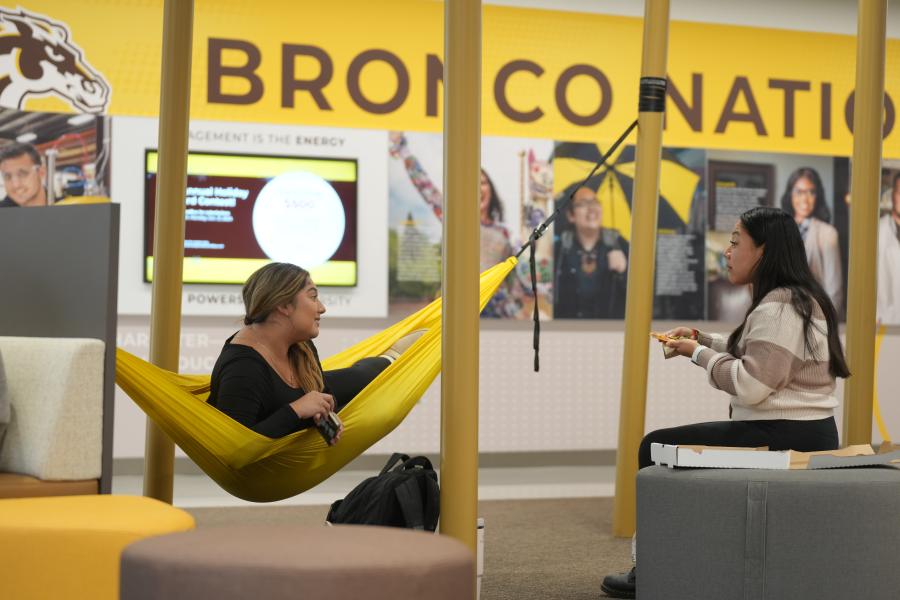
Strategically placed hammocks, natural light and wood design elements bring the outdoors inside for students in need of some relaxation any time of year.
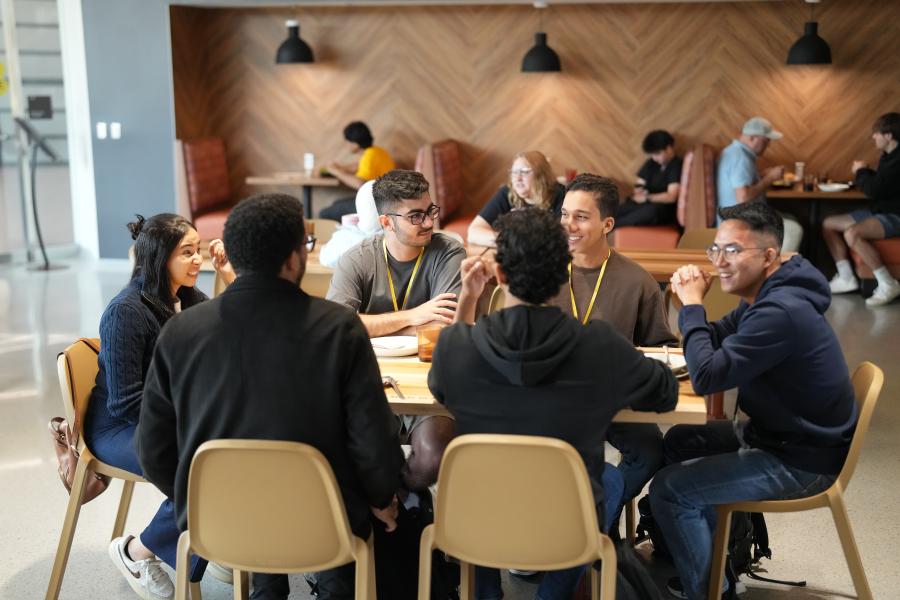
Biophilic design elements can be found throughout the Student Center, including in the 3rd floor dining center.
(Kalamazoo, Mich.) - The WMU Student Center was awarded the Leadership in Energy and Environmental Design v4 Building and Construction: New Construction (LEED v4 BD+C: NC) certification. As the 17th WMU building to obtain LEED certification since 2009, the award marks another win for sustainability at Western Michigan, supporting the university’s commitment to people, places, and planet under the Okanagan Charter.
Administered by the Green Business Certification Inc. (GCBI) and maintained by the United States Green Building Council, the LEED ratings system provides a widely used set of environmentally responsible design and construction standards. Buildings are graded on a point system in categories including energy and atmosphere, indoor environmental quality, innovation in design, materials and resources, sustainable sites and water efficiency. The WMU Student Center’s natural design aesthetics, reduced parking footprint, and low-emitting materials earned the building high marks for innovation.
“One of Student Affairs' focus areas is “Stewardship and Sustainability," with sustainability being a key priority for WMU as a whole,” notes director of the WMU student center Paul Terzino. “Attaining LEED Silver certification aligns with these objectives and assures us that our attention to sustainability in the planning and programming phases paid off.”
Sustainable Highlights
In addition to the biophilic features and inclusive spaces student input helped bring to the building’s overall aesthetic and daily usage, the 162,000+ square foot building is a showcase example of diverse sustainable construction. Highlights include:
- Low flow sinks, toilets, and urinals in restrooms provide 33% water savings compared with traditional plumbing fixtures.
- Energy efficient heating and cooling systems and Energy Star certified equipment in the dining halls and retail spaces provide a 26% reduction in overall energy consumption.
- A convenient on-campus location that encourages access by bike or pedestrian paths.
- Natural daylight from the skylit heart that also helps limit electric energy usage during the day.
- Ample recycling stations throughout the building, including specific locations for e-waste and batteries.
- Open lawn areas, shade trees, and year-round living landscape chosen for their limited irrigation needs.
Even the materials used to construct the campus gathering space were carefully chosen from an environmental standpoint. During construction, recycled materials and lower-carbon formulations were given priority over high-impact materials like concrete and steel.
Sustainability will remain a top priority for student center staff
For Paul Terzino, the impressive certification of a building that has come to mean so much to the campus community is only the beginning. “I strongly believe in leading by example. Attaining LEED Silver (and maintaining it) is one way of modeling good decision making and environmental stewardship. This certification is a start, but we need to remain focused on sustainability and strive to exceed sustainability goals and expectations.”
For more WMU news, arts and events, visit WMU News online.

